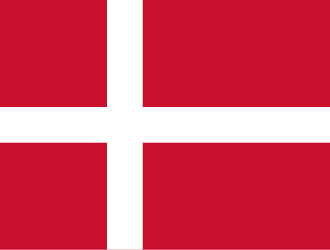
The science behind cold baths
Learn the science behind cold baths and how it can benefit the body and mind
Difference Between Good and Bad Stress
We often talk about how stress is bad for the body. But is it always so? No, not really. There is probably an important dividing line to draw between good and bad stress.
The so-called negative stress arises as a result of inadequate sleep, emotional stress, worry and much more. Good stress, on the other hand, can include several different activities where the main one is exercise. Other types of good stress can be fasting, for example, as well as shorter periods of heat (e.g. sauna) and cold.
What is it that qualifies cold as a good type of stress? We find this answer by studying the body's physiological response to cold exposure.
We've rounded up and clarified the top benefits of cold exposure and why cold baths can become your new favorite habit. Hang in there!
Key benefits
Fast recovery
Cold exposure reduces muscle soreness and pain by increasing blood flow to the muscles and reducing swelling.
Better mental health
Cold baths kick-start a powerful release of dopamine, which can dampen anxiety & symptoms related to depression as well as improve your overall mood.
Increased metabolism
Cold baths increase metabolism by up to 350% because the body must burn fat and sugar to naturally increase body temperature.
Reduced inflammation
Cold baths reduce inflammation levels throughout the body and strengthen the immune system through stimulation of the vagus nerve and the brown fat.
Release of norepinephrine
One of the most proven effects of cold exposure is the release of the hormone norepinephrine via the sympathetic nervous system. An increase in this hormone is associated with increased focus, humor and increased attention. A lack of norepinephrine in humans is strongly correlated with depression. In studies conducted on cold exposure, it has been possible to observe up to threefold increases in norepinephrine in the core.
Recovery and performance
Cold baths have been shown to be effective for several parameters in recovery and athletic performance. One study showed that cold baths after strength training led to increased explosiveness and reduced heat.
Cold exposure also activates a gene called for PGC-1α, this gene creates more mitochondria in the muscle. Increased mitochondria corresponds to increased aerobic capacity. A 15-minute session of cold exposure after high-intensity looping increased the amount of PGC-1α in the muscle. Another study showed that elite runners who used cold baths after a swim session had a 20 percent increase in speed and strength for up to 2 days.
Improvements in retrieval have also been noted. One study showed that cold baths after exercise improved muscle recovery by reducing the inflammatory process. Elite cyclists who used cold baths for 30 minutes, 4 walks per week for about a month experienced a 4.4% increase in average peak power, 3% improvement in cycling performance and a 2.7% increase in strength during the period. That's awesome!
Studies, articles and research journals
Effects of Cold Stimulation on Cardiac Vagal Activation in Healthy Participants: A Randomized Controlled Trial
The Effect of Different Water Immersion Temperatures on Post-Exercise Parasympathetic Reactivation
Face immersion increases vagal activity as assessed by heart rate variability
Bone remodelling biomarkers after whole body cryotherapy (WBC) in elite rugby players
Seriële whole-body cryotherapy in the cryostream for inflammatory rheumatic diseases. A pilot study
Efficacy of Whole-Body Cryotherapy as Add-on Therapy to Pharmacological Treatment of Depression-A Randomized Controlled Trial.
Whole-body cryotherapy in athletes
Contrast water therapy and exercise-induced muscle damage: a systematic review and meta-analysis
Don't Lose Your Cool With Cryotherapy: The Application of Phase Change Material for Prolonged Cooling in Athletic Recovery and Beyond
Efficacy of Whole-Body Cryotherapy as Add-on Therapy to Pharmacological Treatment of Depression-A Randomized Controlled Trial
Cold-water immersion (cryotherapy) for preventing and treating muscle soreness after exercise
Cold-Water Face Immersion Per Se Elicits Cardiac Parasympathetic Activity
Translating whole-body cryotherapy into geriatric psychiatry -- a proposed strategy for the prevention of Alzheimer's disease
Whole-body cryotherapy in rehabilitation of patients with rheumatoid diseases--pilot study
Let go and discover your potential
Mana allows you to focus on the present moment and let go of all everyday stress. Try it, and discover your inner power.


